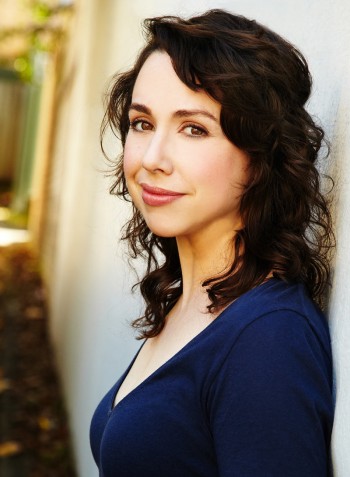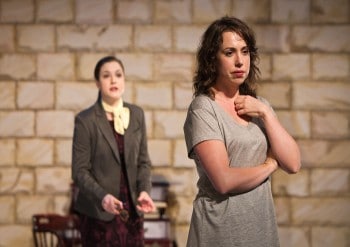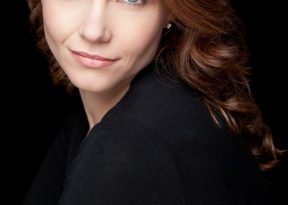South Australian Talent and the Helpmanns
If she weren’t an actor Alison Bell would probably be making better use of her law degree. Having walked away with the Helpmann Award for Best Female Actor in a Play, it’s pretty clear that she has made the right career decision.

The award recognises her stunning performance earlier this year in the State Theatre Company of South Australia’s Hedda Gabler. But it was a bit of a surprise for Bell, who had spent more time rehearsing a disappointment face than preparing an acceptance speech.
“It’s truly an honour. The two roles I was nominated for were particularly challenging and that makes the recognition rather special. I’m pretty lucky,” Bell said.
The production itself was also up for the gong for Best Play, but missed out to Sydney Theatre Company’s Secret River. These nominations were two of very few for the South Australian arts industry.
“It’s apparently the first time STC has been represented in the best show category, but I think it’s probably time to celebrate theatre in South Australia”, comments Bell.
South Australia represented less than ten percent of overall nominations at this year’s Helpmann Awards. The Awards pride themselves in recognising the nation’s artistic achievement and excellence, yet do not reflect an equal cross section of the nation’s entertainment industry.
“There is a real problem in the nomination and judging process of the Helpmanns,” said arts journalist Samela Harris
Harris is a veteran South Australian journalist, critic and blogger. The arts run in her blood; her mother was an actress and her father an intellectual and literary expert. Amongst her many roles Harris used to be involved in the adjudication of the Helpmann Awards. “The Helpmanns demand judges to have seen every production in every state, but I could never quite see everything. It’s probably why South Australia fairs so poorly now.”
While the nominating panels include a mix of Australia’s industry professionals, they are as Eastern-centric as the nominations themselves. Harris says, “a lot of wonderful things get missed”, but it is simply brushed aside by explaining that Melbourne and Sydney have a larger artistic output.

Long before the Helpmanns were even conceived, Robyn Archer requested the formation of the Adelaide Critics Circle (ACC). From the late 1990s a cohort of professional arts critics from mainstream and independent media began meeting to assess the state of the arts and award its level of excellence. Samela Harris was the founding chair.
The ACColade awards have been held every year since. Adelaide arts critics are “among the most feared in the country”, so an ACC statue comes with high acclaim. Some of the most recent winners include Windmill Theatre, and Kate Cheel (who also appeared in Hedda Gabler).
The ACC is a non-profit body that receives funding from Arts SA and various private beneficiaries. There is no razzle-dazzle, no red carpet, no media coverage – the money is channeled directly to award winners.
“We have a low key night so that all the money goes to the art; we’re not a production for a production’s sake. While it is nice to celebrate, theatre companies are struggling and actors are grappling for work.”
Unlike the Helpmanns, applicants need not set aside money to apply for the awards. The ACC elect each nominee, providing an impartial judgement, free of bias and invested interest. It’s a staunch representation of the arts in Adelaide; there is only a small selection of specific awards and a production of mostly foreign talent would not be nominated (no matter the size of the ape).
The Helpmann Awards have been much criticised this year (here and here). If it is to adequately fulfill its role, it may need more than just new hosts. As Samela Harris states, instead of brushing the smaller city aside, a lot can be learned from Sir Robert Helpmann’s hometown.
“Adelaide is a crucible of creative talent, but we miss out – it’s a disappointing fact. But we stand up and do our thing – and we do it well.”


